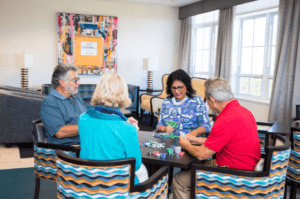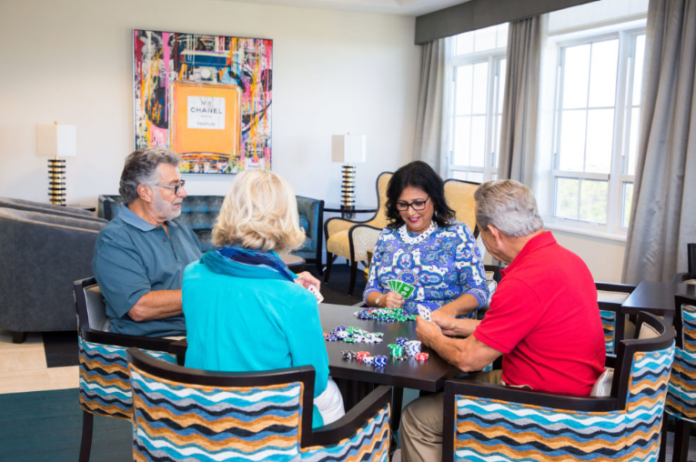
Republished with permission from Cannabis News Florida
Across the country, medical marijuana has become accepted as a treatment alternative in several different nursing homes for residents who have chronic conditions. If a current pilot program goes well, Florida could soon make cannabis available to statewide nursing homes as well.
Earlier this year, MorseLife Health System became the only senior living provider in Florida to offer cannabinoid-based (CBD) therapies for its residents as an alternative to pharmaceuticals under a pilot program authorized by the state.
MorseLife manages a rehabilitation, independent living, assisted living, memory care, hospice, PACE (Program for all-inclusive care for the elderly) and home health care in West Palm Beach, serving more than 3,600 seniors per day.
As the only teaching nursing home in the state of Florida, the non-profit will conduct a medical marijuana research pilot program that will reduce and/or replace the use of certain pharmaceuticals with cannabinoid-based treatment and measure the impact of medical marijuana on certain diagnoses. The pilot program is expected to last 18 to 24 months and the initial target is to treat at least 50 patients.
The types of health conditions that may be treated as part of the study include depression, anxiety, agitation, sleep interruption, chronic pain and side-effects from treatments or conditions related to aging.
MorseLife President and CEO Keith Myers was excited that MorseLife was selected to participate in the pilot study.
“We can focus on ways to reduce opioid reliance, better manage the patient’s pain, increase appetite, reduce anxiety, and help reduce outbursts in memory care in patients with Alzheimer’s,” he says.
“Along the full continuum of care, MorseLife is uniquely qualified to introduce these new therapies for alleviating pain and other debilitating conditions in a safe and controlled environment,” he adds. “It is essential to evaluate their applications, recognizing that our findings may lead to evidence-based treatments for the future.”
Prior to joining the program, older adults will be evaluated as to their ability to benefit from cannabinoid-based therapies to reduce the reliance on pharmaceuticals and opioids.
Individuals in any of the MorseLife care settings, including assisted living, short term rehabilitation, long term care, memory care and hospice, may participate in the program, however no federal funds may be used to pay for the resources associated with medical marijuana treatment.
Local physician Melanie K. Bone, M.D., who specializes in CBD treatment and has been authorized by the state of Florida to order medical marijuana, will lead the program. Dr. Bone is currently educating the residents, family members and employees on the benefits of CBD treatment.
Myers says that one of the challenges residents who plan to take cannabis face is the stigma of using medical marijuana.
“Seniors tend to look down on the use of cannabis,” he says. “It has a taboo to it.”
That’s one of the reasons why they have incorporated an education phase of the pilot program, Myers adds.
“Following this phase, the physician and patient will decide what type of CBD product will be appropriate for the patient’s illness and then we will begin to study the effects,” he says. “Another challenge that patients will have to overcome is deciding to take CBD versus a medication that has had a known impact on the symptoms of their diagnosis.”
The study has the potential to revolutionize treatment protocols for multiple illnesses affecting senior citizens by using cannabinoids to reduce the side-effects, addiction rate, and cost of standard medical protocols using opioids.
“At the conclusion of this study, we hope to see patients with improved outcomes, better quality of life, and less drug interactions,” says Myers. “I hope it will ultimately become part of the preferred treatment over a reliance of opioids.”
For more information, visit morselife.org.






